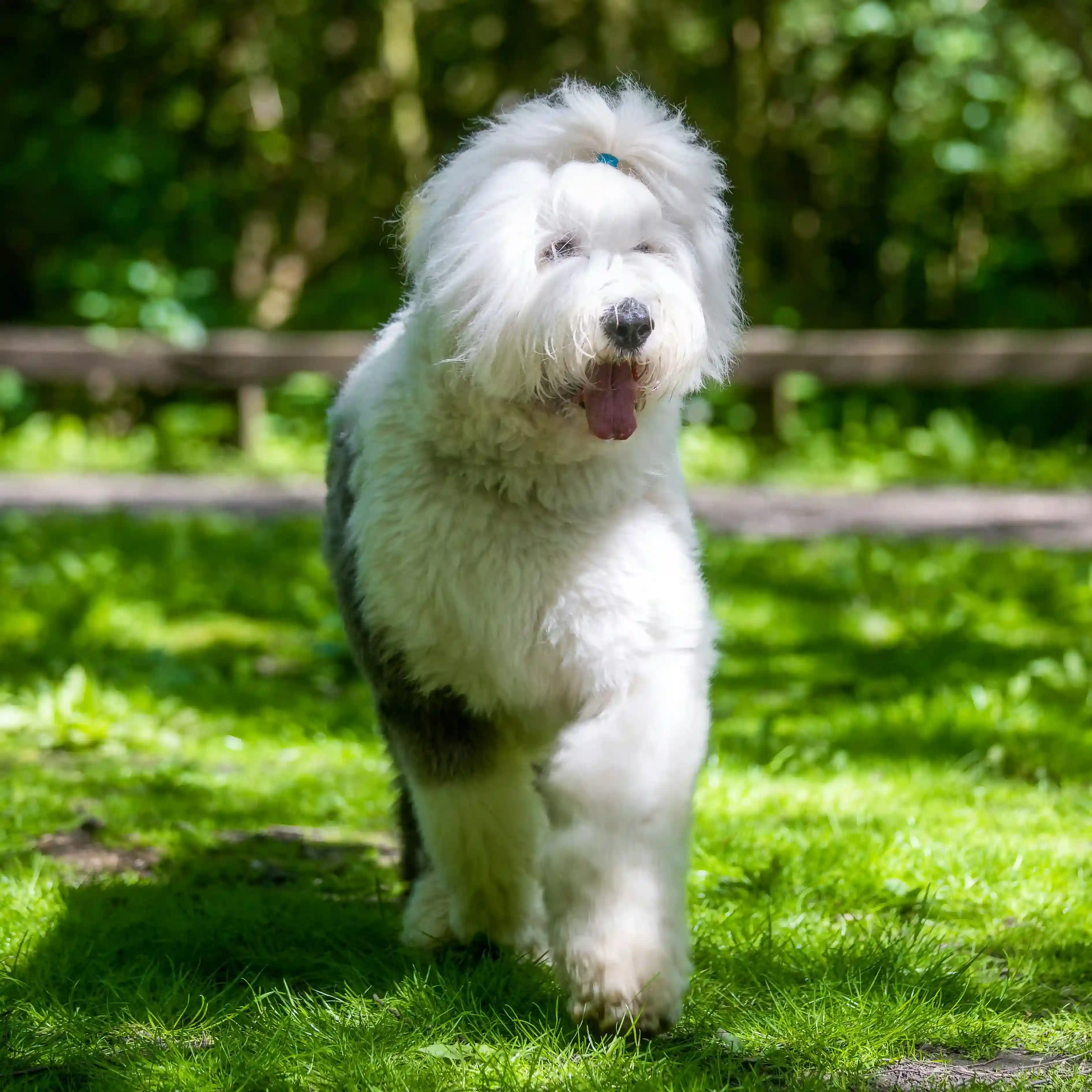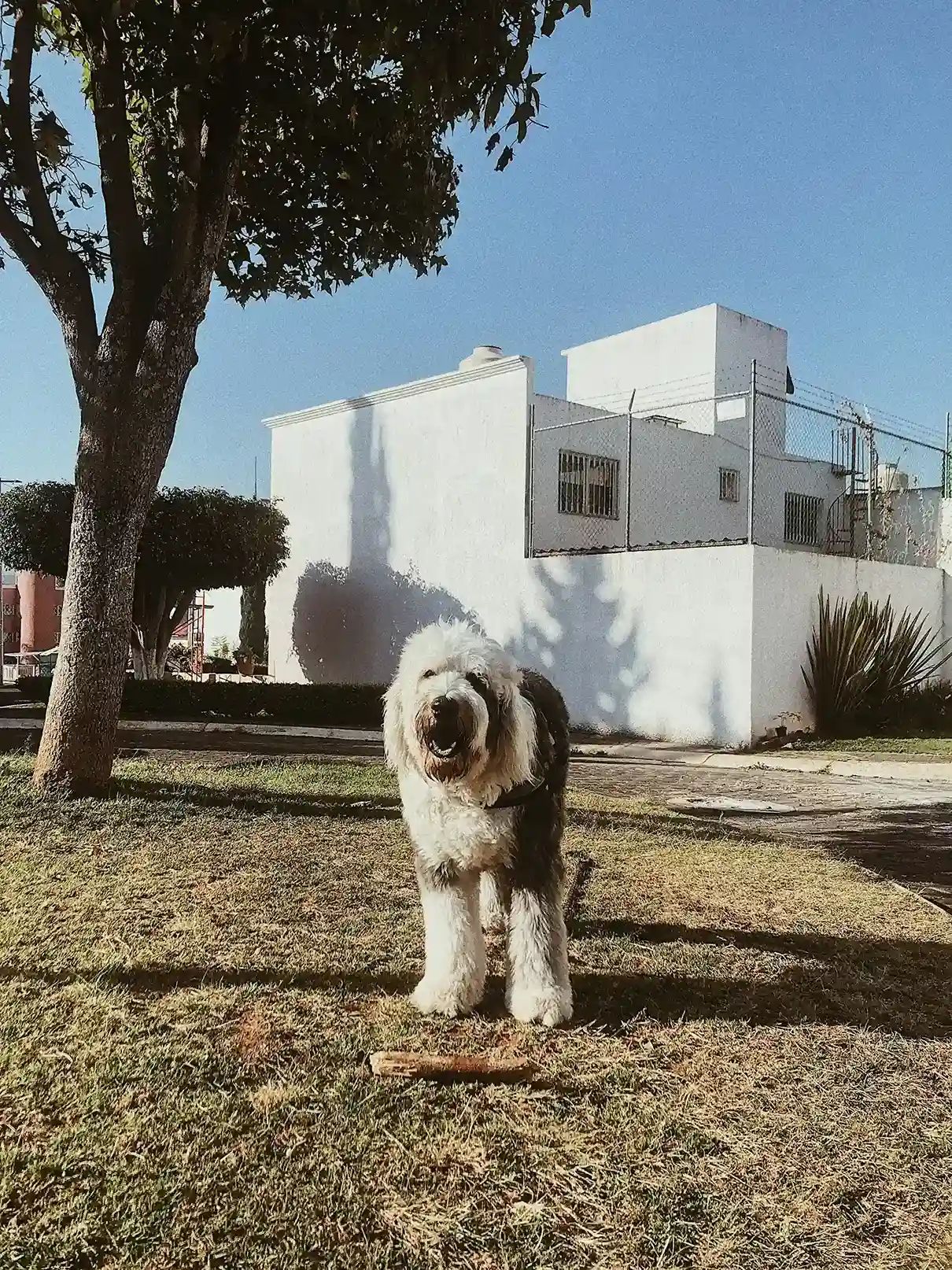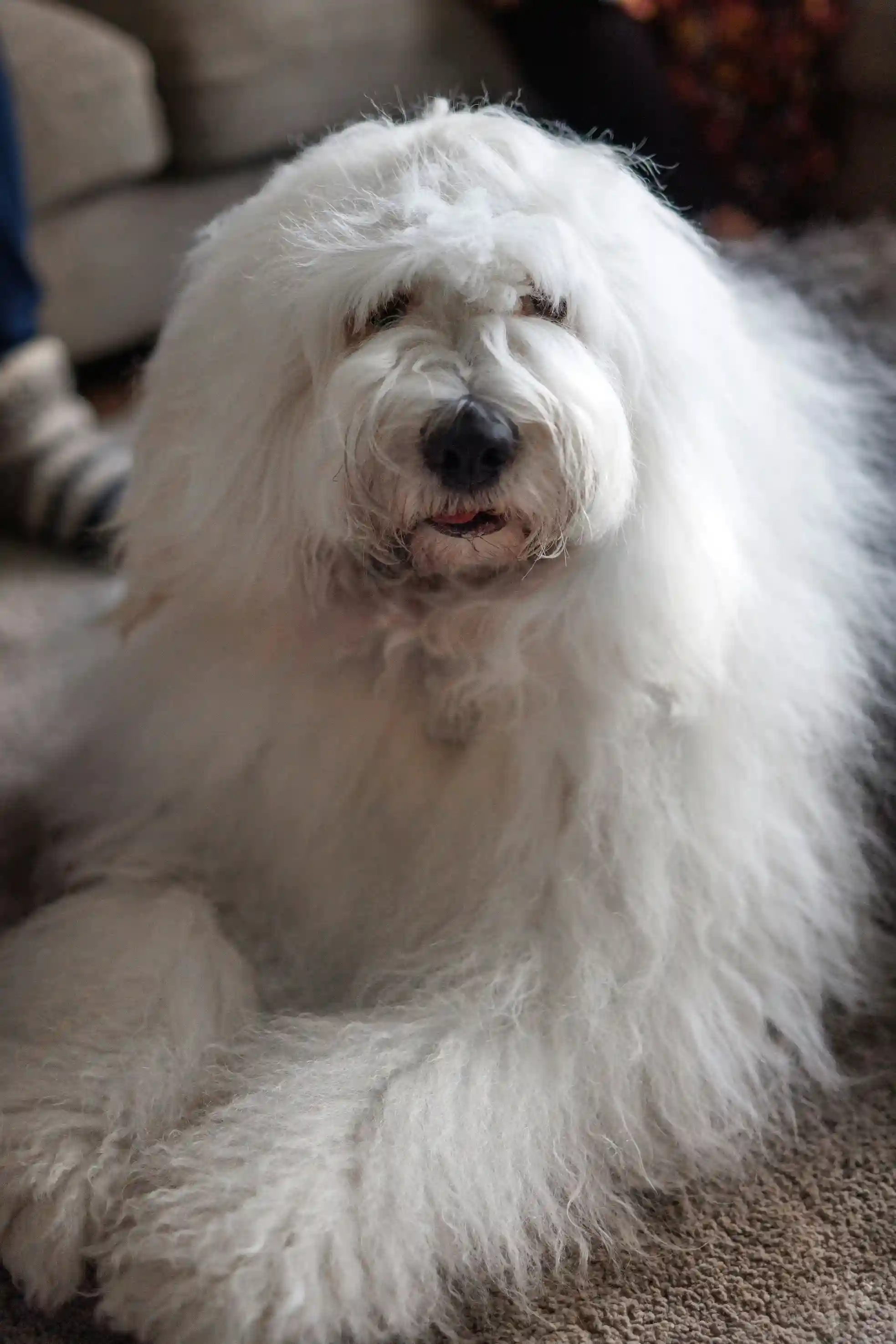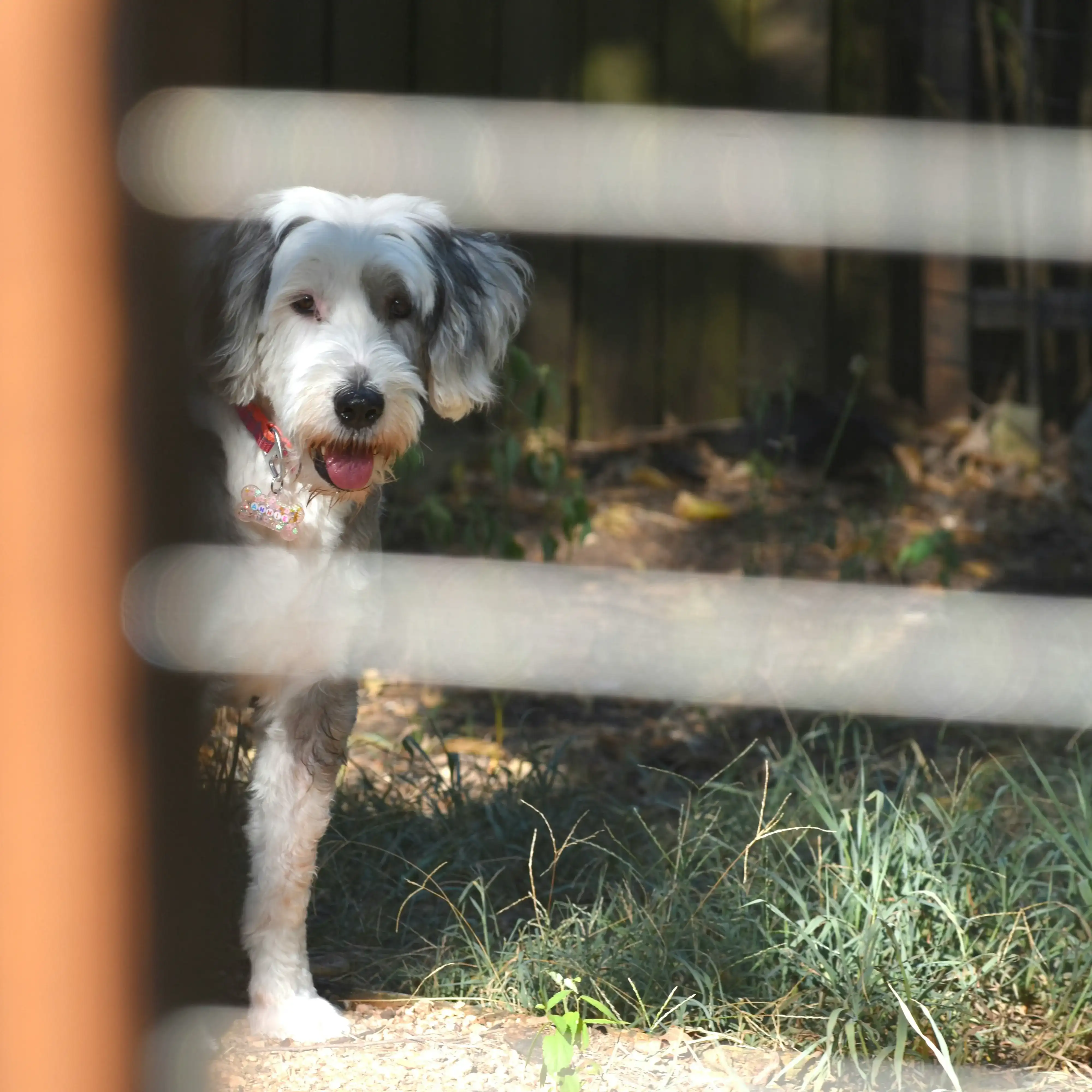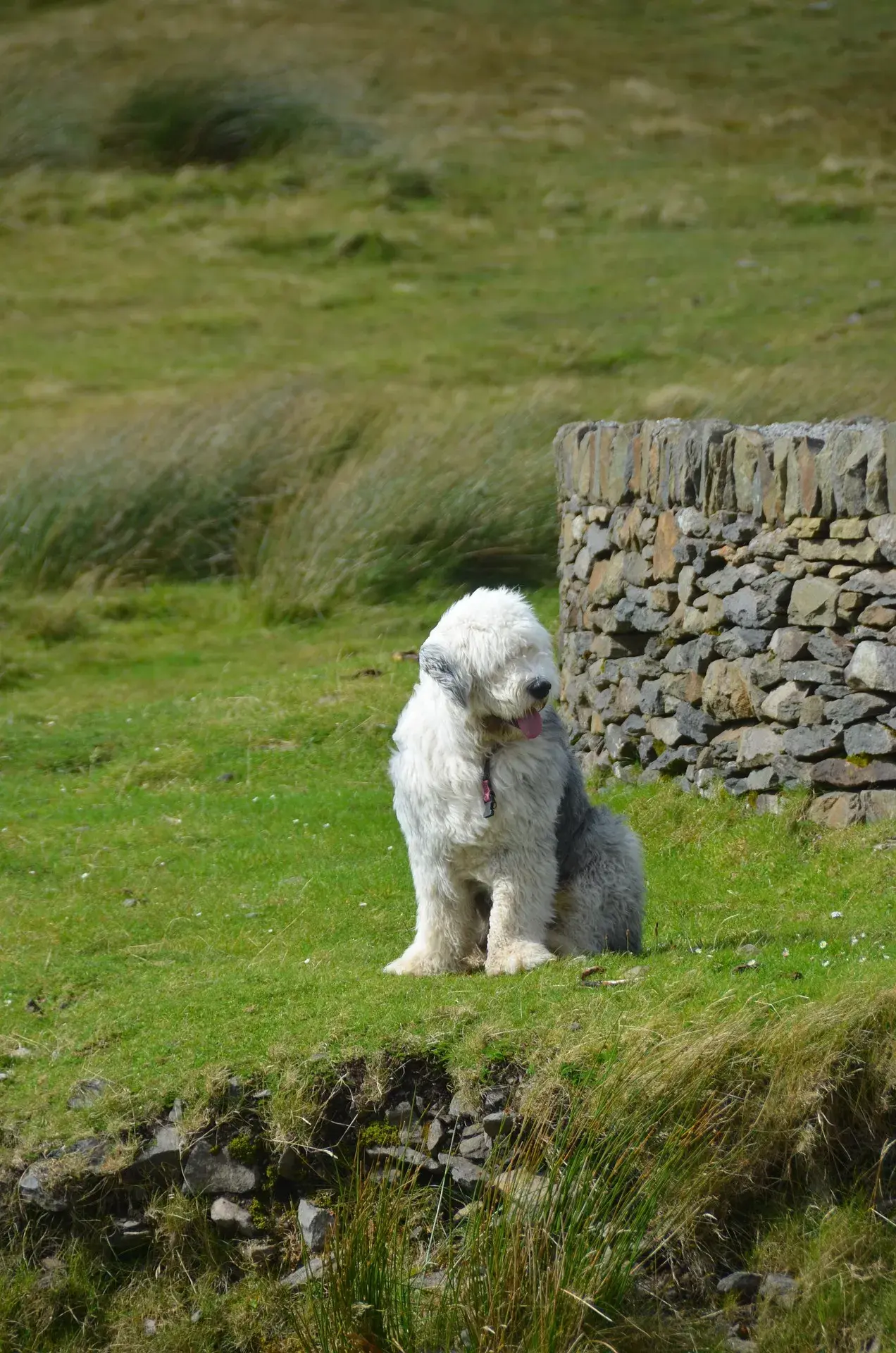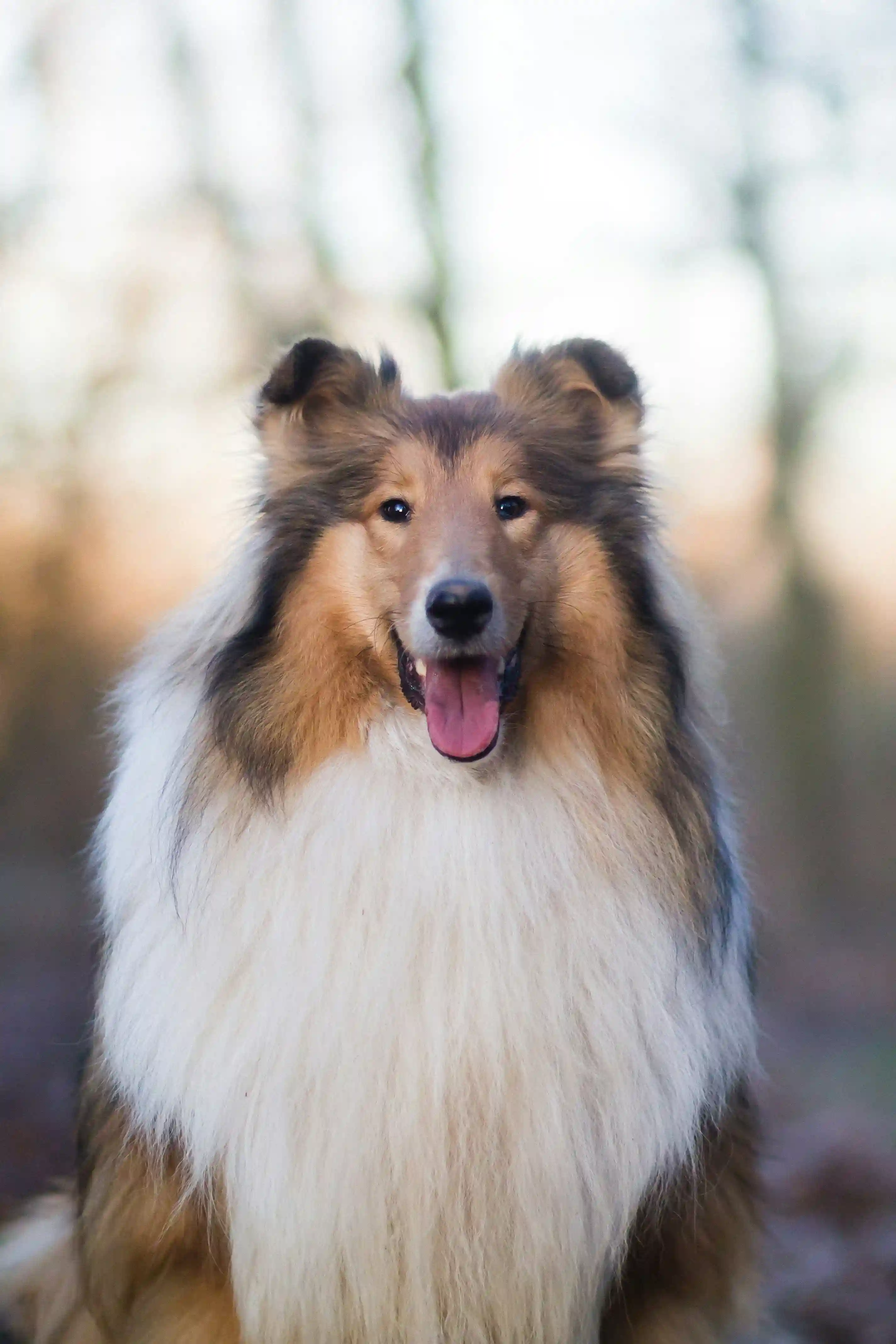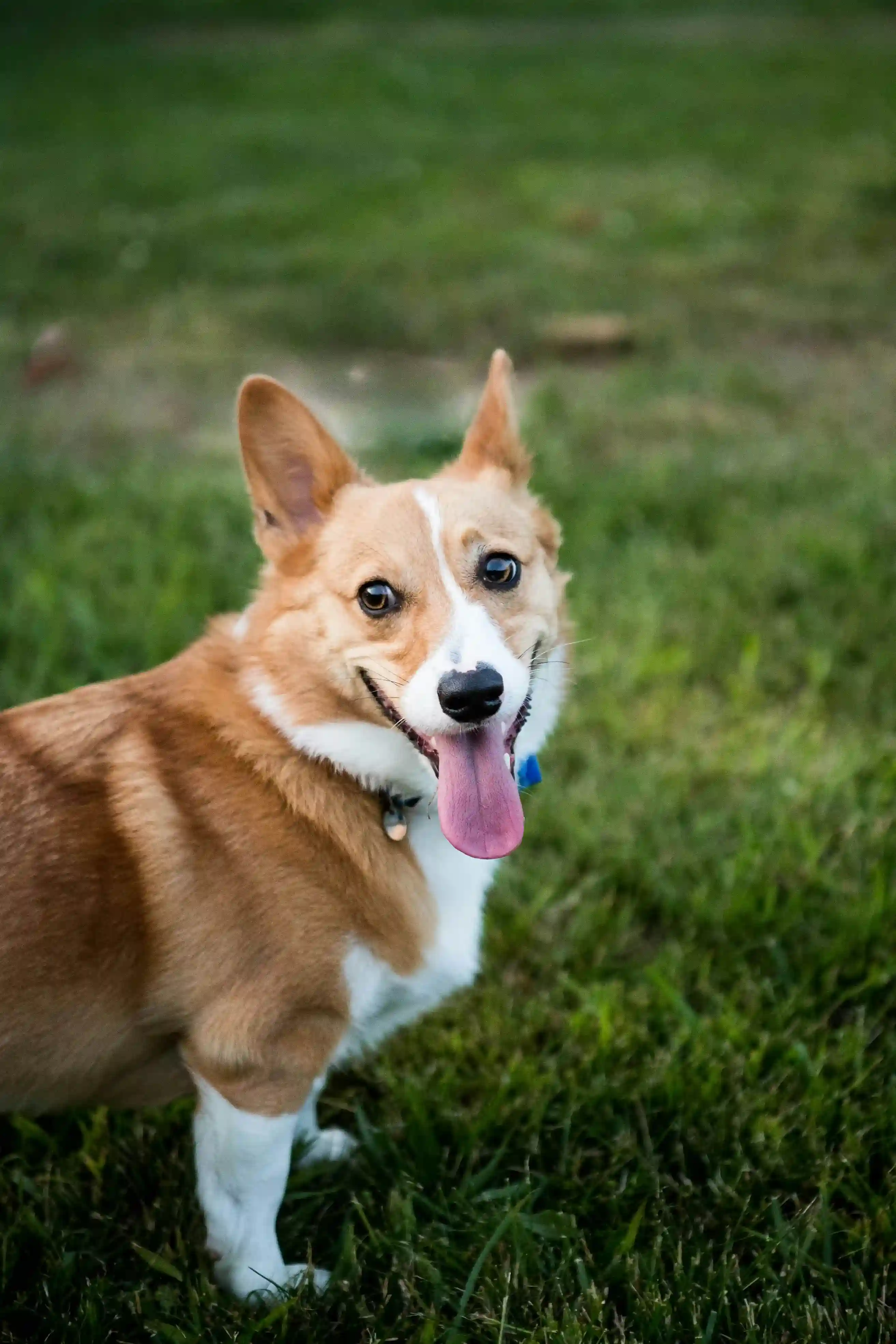Summary: The Old English Sheepdog, often referred to as the Bobtail, is a large, fluffy breed recognized for its unique shaggy coat and gentle personality. Historically bred as a herding dog, they are highly skilled at working with livestock but are also known for their affectionate and friendly nature, making them fantastic family pets. Despite their imposing size, they are often playful, gentle, and good with children, forming strong bonds with their families. Old English Sheepdogs are intelligent and versatile dogs that require plenty of attention and care but repay their owners with loyalty and companionship. Their distinctive look and calm demeanor make them well-loved in both urban and rural environments.
Care: Old English Sheepdogs have a thick, dense double coat that requires consistent grooming to keep it from becoming matted. Regular brushing is necessary, ideally every couple of days, to remove tangles and mats. They also benefit from occasional baths to maintain their coat’s cleanliness and texture. Due to their thick coat, they are prone to overheating in warm weather, so it’s important to provide them with a cool environment during hot months. Exercise is key for their physical and mental well-being; daily walks and playtime are essential to keep them fit and engaged. They also enjoy mentally stimulating activities such as obedience training or puzzle games. Given their herding background, they benefit from tasks that involve focus and mental challenge, as this helps to prevent boredom and destructive behavior.
Conditions: Old English Sheepdogs are best suited for homes with plenty of space, such as those with large yards where they can run and play freely. Their gentle nature makes them great companions for families, and they do well with children and other pets, especially when socialized from an early age. However, due to their herding instincts, they might try to herd smaller animals or children, which can require management and training. They thrive in environments where they receive regular grooming and attention but may struggle with being left alone for long periods. Their thick coats make them more suited to cooler climates, and during the summer, they may need extra care to stay cool. Due to their size and energy levels, they are better suited for active households that can provide them with the exercise and attention they need to stay happy and healthy.
updated: Feb. 11, 2026, 1:36 p.m.
